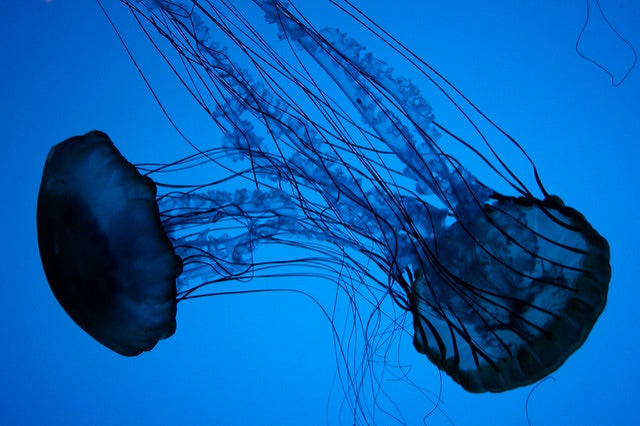N.J. to host demonstrations on how to reduce sea nettle population

If you live on a lagoon or along a bulkhead, this is for you.
The state Department of Environmental Protection is hosting “Barnegat Bay Bulkhead Blitz” events through next week in Barnegat Bay communities to demonstrate simple steps waterfront property owners can undertake to reduce the sea nettle population, according to a release.
The sea nettle, a type of stinging and highly predatory jellyfish, can hinder recreational enjoyment of the bay and create ecological imbalance.
[RELATED: Jellyfish explosion in Barnegat Bay worries scientists]
“The Barnegat Bay Bulkhead Blitz pilot project, which started last fall in Toms River, is designed to educate those with floating docks and man-made bulkheads that help to keep stinging sea nettles in check is as simple as periodically scrubbing or power-washing the speck-sized polyps that adhere themselves to hard surfaces,” the release states. “These polyps then spawn into buds, which are released into the water in the spring and grow to become sea nettles in the summer.”
DEP staff and volunteers will be in the Curtis Point section of Mantoloking on Friday, the Berkeley Shores and Good Luck Point sections of Berkeley on Saturday and Sunday, and the Shore Acres section of Brick next Thursday. The crews will arrive in each area at 10:00 a.m.
“Our research conducted in partnership with Montclair University shows we can all make an impact on controlling sea nettles by taking a few simple, but effective steps in the spring or in the fall,” said DEP Commissioner Bob Martin. “Sea nettle populations can become problematic in areas where water flow is restricted. The scrubbing or power washing of bulkheads and docks can greatly reduce the number of sea nettles we see later in the summer.”
[RELATED: Five potential factors for the expansion of the sea nettle population]
A Montclair State University study found that the higher density of sea nettles in the northern areas of Barnegat Bay could expand southward and into other New Jersey estuaries and coastal waters.
WHYY is your source for fact-based, in-depth journalism and information. As a nonprofit organization, we rely on financial support from readers like you. Please give today.

